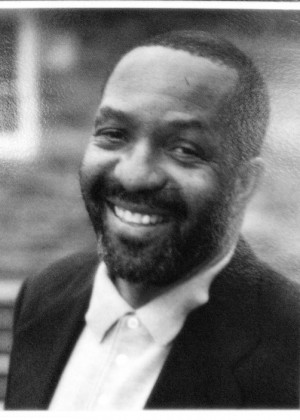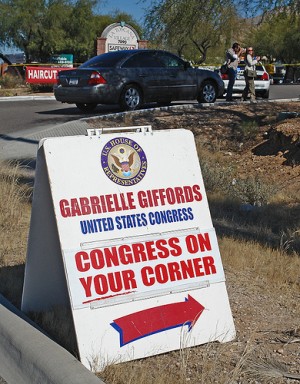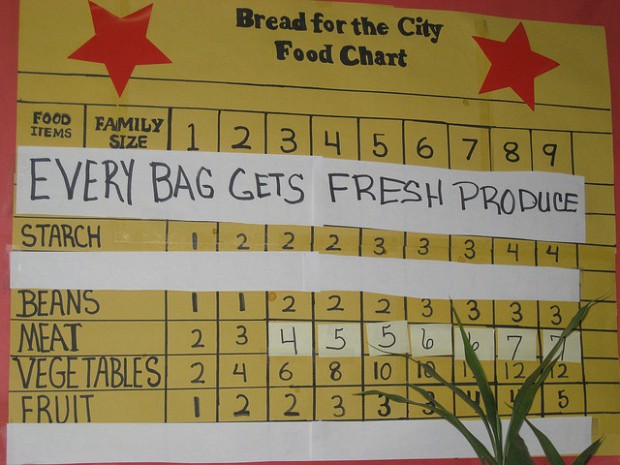January 11, 2011 | 10:31 AM | By Anna

Flickr: Mr. T in DC
Now reading: “People riding bikes aren’t jerks, they’re just like you“, via Greater Greater Washington.
It’s also important to cultivate advocates from every DC community who can talk to their community leaders about why they should support cycling. Shane Farthing cited this as one of his priorities when he took over at WABA.
Keeping DC’s black population involved with cycling is especially important in order to keep bike infrastructure from becoming a wedge issue, as it did during the recent mayoral election.
A negative narrative can lead to opinions about cycling like that of ANC 8C03′s Mary Cuthbert, who told the Washington Post that “we don’t need no bicycle lanes.” A more positive narrative, on the other hand, can build upon the advantages that good cycling infrastructure brings.
Continue reading →
January 11, 2011 | 8:38 AM | By Anna
Book Review: A New Biography of U Street “Washington’s U Street: A Biography, a rare piece of D.C. history not focused on the city’s most powerful inhabitants, chronicles the African American heritage that happens to center around the area between Shaw, Adams Morgan, Dupont Circle, and Columbia Heights. That set of diverging, intertwined storylines has long waited for a suitable telling…As I entered the world of U Street, I came to appreciate more and more that its history is about how human beings strive for beauty in the face of stupidity, folly, injustice, and brutality” (Washington City Paper)
Rhee criticizes teacher tenure, unions in nonprofit agenda “Former D.C. schools Chancellor Michelle Rhee released a policy agenda for nationwide education reform Monday that criticizes tenure and teachers’ unions while lauding Rhee hallmarks like merit pay and Teach for America. Although no one is particularly surprised about Rhee’s agenda, plenty of education traditionalists are already fuming over the document from StudentsFirst, the nonprofit education-reform advocacy group Rhee founded last month.” (Washington Examiner )
Who Are We Protecting by Censoring ‘Huck Finn’? “…NewSouth Books would seem to be creating a baby-food version of Huckleberry Finn, with the n-word replaced by “slave” because of feedback from teachers who claim the book has become “unteachable.” I see. Eighth-graders are too unformed to understand the difference between someone calling someone else the n-word and an author using the word in an ancient book to reveal characters as ignorant. Interesting, given that the same eighth-graders hear the same word used by rappers daily and understand the difference between that usage — as a term of endearment — and the epithet one.” (The Root)
Continue reading →
January 10, 2011 | 4:01 PM | By Anna

Flickr: Chotda
Amazing bookshelves, right?
Something a little lighter, after two Tucson posts– more proof that D.C. is the smart city, via
WaPo:
D.C. residents rank as the nation’s most well-read, according to the America’s Most Literate Cities study. But the news is not all good.
The decline in newspaper readership and book purchasing are major cause for concern, said the author of the report, Central Connecticut State University President Jack Miller.
These trends raise real concerns about Americans’ literate behaviors, the report states.
I think one of the reasons D.C. loves reading is because we’re always on our way somewhere, waiting for a bus or train. I also wonder if the internet is responsible for the declines that the report’s author is so concerned about…I read and buy less books and one less newspaper than I did a few years ago, but that’s only because the way that I consume news and reading material has changed– I am able to find both, online.
January 10, 2011 | 1:39 PM | By Anna

WAMU 88.5
Kojo Nnamdi
I was lucky enough to see WAMU’s Kojo Nnamdi when I was at the station this morning; I asked him what he thought of the tragic shooting this weekend in Tucson. His take:
It seems to me that there are two political battles we are trying to fight: one is whether or not we can lower the volatility of our political discourse and the other is whether we can limit access to handguns and weapons of deadly force.
I don’t have a great deal of optimism that either battle can be won. In the short term, the battle to lower the decibel levels of our political discourse may seem to succeed, but in the final analysis, talk radio is a for-profit business and volatility seems to drive the profitability.
In the second instance, gun manufacturers and the NRA seem to have congress in a headlock, to mix metaphors. Hence my lack of optimism.
January 10, 2011 | 10:30 AM | By Anna

Flickr: SearchNetMedia
A sign promoting the "Congress on Your Corner" event that Rep. Giffords was hosting on Saturday.
Alex Villec was three feet from Congresswoman Gabrielle Giffords, his former boss, when she was shot along with nineteen others on Saturday, in Tucson, Arizona. Via Vox Populi:
Like most students home on break, Alex Villec (COL ’13) decided to spend his time visiting friends back home. Villec—a former Washington and district office intern for Representative Gabrielle Giffords—assisted in running the “Congress on Your Corner” event yesterday in his hometown of Tucson because he wanted to visit friends he had made while serving as an intern.
As Villec checked constituents in at the event, Jared Loughner, the alleged shooter, came up to him and asked to speak to the congresswoman.
Villec told Loughner that he would have to go to the back of the line and wait about twenty minutes before he could talk to Giffords. After a few minutes, Loughner left the back of the line and started toward the congresswoman.
“He was intent when he came back,” Villec told the Arizona Daily Star. “I didn’t see his gun, but it was clear who he was going for. He was going for the congresswoman.”
January 10, 2011 | 8:32 AM | By Anna
Good morning, DCentric readers! Did you enjoy your weekend?
South Draws U.S. Blacks “We can save, we can travel, and we can get out of debt,” she says of the lower taxes and cost of living in her new state. All this is slowly unwinding the so-called Great Migration, the 20th-century movement of blacks from the South to the growing industrial cities of the East Coast, Midwest and West…Since 2000, the South has had three quarters of the nation’s Black population growth…In 2009 the metro area with the largest share of college-educated blacks was Washington D.C., just ahead of San Jose, Calif., which had the largest share in 2000.” (Wall Street Journal)
Georgetown neighbors fighting new growth plan “…neighbors say the university has not done enough to control student behavior, especially late at night and on weekends. In the spring, some residents began decorating their front yards with signs reading, “Our Homes, Not GU’s Dorms.” That prompted a student blog, Vox Populi, to solicit student suggestions for their own signs. The most popular were, “Georgetown University, Raising Property Values Since 1789,” and “Complain to my landlord, not my school.” (The Washington Post)
DYRS home for wards of D.C. lacks records “D.C. officials say no records exist documenting inspections, escapes or unusual incidents at a Northwest Washington group home for troubled youth run by a politically connected nonprofit that has seen at least one teenager in its care accused of homicide and another brutally slain in the last year. “My understanding is the documentation is supposed to be there for Dupree House, but it is not,” former interim DYRS Director Robert Hildum told The Washington Times in November, before he resigned.” (Washington Times)
January 7, 2011 | 4:01 PM | By Anna

Flickr: BBC World Service
A food chart for clients of Bread for the City. Next week, DCentric will take a closer look at the triumphant expansion of both their facilities and services.
I’m leaving the blog for a few hours to go visit Bread for the City–a front line agency serving Washington’s poor– for a very happy reason:
As we approach the end of this year, it already feels like the start of something new. Our expanded Northwest Center is partially up and running, and the excitement of what’s to come is in the air…
I hope you’ll join us to celebrate this new chapter: all are invited to attend the Grand Opening on Friday January 7th, from 4-7pm at 1525 7th street NW. We’ll be joined by Councilmembers and other city leaders to cut the ribbon and raise a cheer for the growth to come.
At the beginning of this week, I spoke to Bread for the City’s Executive Director, George Jones, about how his organization was able to expand during a recession and what such an expansion meant for the D.C. residents who depend on his agency’s services. Look for a two-part interview with Jones next week, right here. Now if you’ll kindly excuse me, I’m off to take pictures of the expanded facilities; if you’ll be so helpful as to tweet something amusing, I’ll make sure it gets enshrined as today’s Tweet of the Day, which will be up later tonight. Happy Friday!
January 7, 2011 | 2:44 PM | By Anna

Flickr: Laura Padgett
Restaurant in D.C.'s West End
From “Why are the East of Cities usually Poorer?”, this is interesting:
Many older cities rapidly expanded during the Industrial Revolution, as workers flocked to the urban centers. As the towns and cities expanded, the residential areas for the workers tended to be in the east, with the middle and upper-classes in the west.
The reason for this is that in much of the northern hemisphere, the prevailing winds are westerlies – blowing from west to east. The massive, unchecked pollution from these early industries would therefore drift eastward, making the air quality much lower in the east end of cities, lowering the desirability (and price) of the housing. Middle classes preferred the cleaner west ends.
The issue was probably even pre-Industrial Revolution, as smoke from personal chimneys would still have caused problems to the east.











